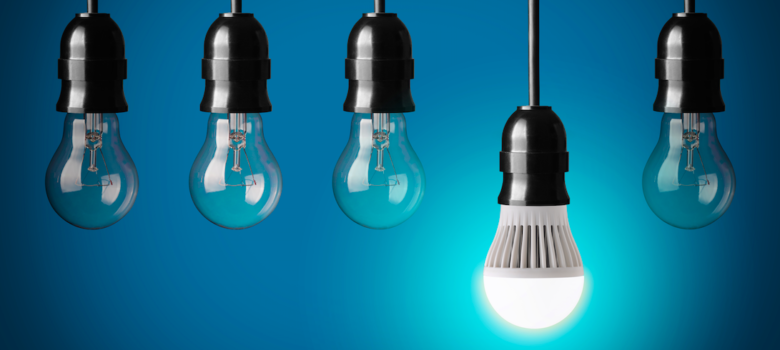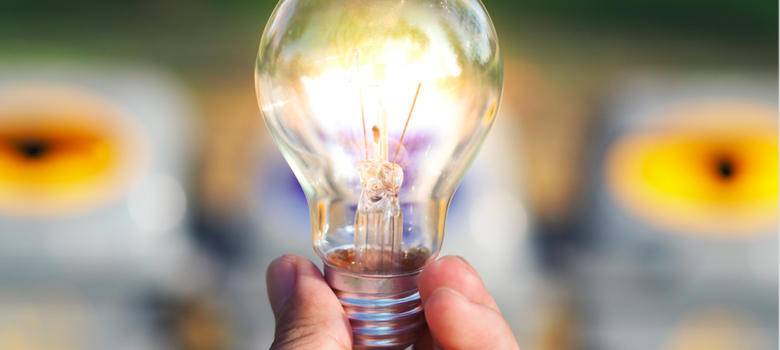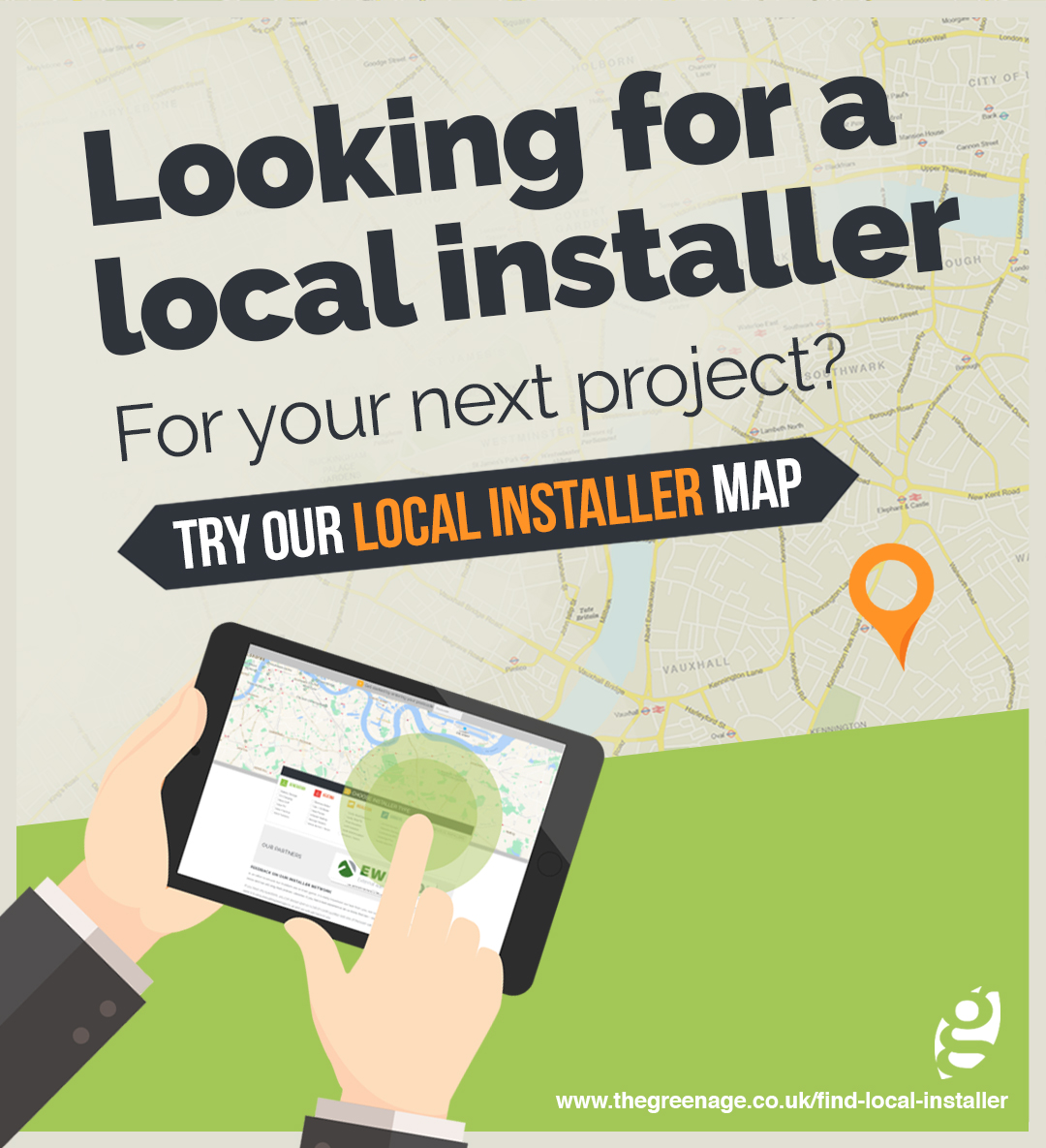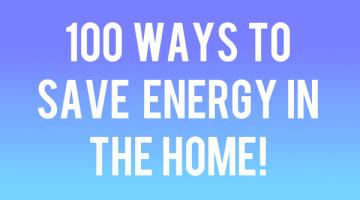
It’s easy to fall victim to bad advice when you turn to the internet.It can be really frustrating when your research actually results in you spending more money! So we’ve been thinking of common energy-saving ‘tips’ we’ve heard (or even once believed ourselves) that are in fact total rubbish. Here are some myths we’d like to dispel:
Running electric convector heaters is cheaper than central heating
This one’s so common. In my student days, it was a recurring source of argument in my house! Really, it couldn’t be further from the truth. How much exactly each costs varies on your energy rate and relative efficiency of models, but it’s pretty much unheard of for a convector heater to be cheaper. A convector heater will cost upwards of 24p per hour, which is a lot if you add it up over a day! Even if you only need heating for a couple of hours, a radiator will be cheaper to heat up and run and will stay warm for longer once you switch it off. This applies both for heating one room, or several.
Painting radiators black makes them more efficient
The confusion here springs from the misconception that radiators emit most of their heat through radiation – the name is misleading! The theory is that dark colours radiate heat more efficiently. However, as radiators work mostly through convection (the transferral of warm energy to cooler places), the idea that painting them black would increase their output is nonsense. Painting your radiators is worth doing, as it helps to protect them, but don’t bother doing it for on this pretence.
LED bulbs are more expensive
No! One LED bulb lasts as long as eight CFLs and uses a quarter of the energy over its lifetime. They are far more efficient than traditional light bulbs, which give off most of their energy as heat. In fact, LEDs use 90% less energy. Sure, they’re a bit pricier to buy, but the initial investment will more than pay off in the savings you’ll make to your energy bill!

Some ‘vampire devices’ use energy when plugged into the wall, even if the socket is turned off. Many of them use energy to run those red standby LEDS. Others suck energy even though they’re not on standby – one way to tell is if they stay warm even when they’ve been switched off. Where possible, unplug things like TV set boxes them from the wall when not in use to make sure. Similarly, chargers plugged into a computer or socket can also drain energy.
Double-glazing is the most cost-effective way to keep heat in your home
Ultimately, any see-through product is never going to be insulating and you will always lose considerable heat through your windows. We’re all bombarded with adverts inflating the benefits of double glazing. Whilst double glazing can help your home retain heat and muffle sound from outside, it’s really expensive for the small amount of difference they make to the temperature of your home. Obviously, the less heat gets wasted leaking out of windows and walls, the lower your energy bill will be. You might save upwards of £100 on your annual energy bill, but it costs thousands to install double glazing throughout a house. In short, you’ll never make back anything like the money you spend!
If you’re willing to consider alternatives, it would be much more worthwhile to spend the equivalent money on wall insulation. Walls prevent heat transfer far better than windows and this means a more comfortable home and lower bills.
Another option is secondary glazing. It’s cheap, easy to install yourself and can be removed on warm days when you don’t want your windows to trap heat!
The higher the temperature you set your thermostat, the quicker the room will heat up
This one’s simple – setting the temperature higher means it will actually just take longer to reach and therefore cost you more energy and money. Just set your heating to come on ten minutes or so before you get home so it’s had time to warm up by the time you get there.













Running electric convector heaters is cheaper than central heating
This one’s so common. In my student days, it was a recurring source of argument in my house! Really, it couldn’t be further from the truth. How much exactly each costs varies on your energy rate and relative efficiency of models, but it’s pretty much unheard of for a convector heater to be cheaper. A convector heater will cost upwards of 24p per hour, which is a lot if you add it up over a day! Even if you only need heating for a couple of hours, a radiator will be cheaper to heat up and run and will stay warm for longer once you switch it off. This applies both for heating one room, or several.
Here they are assuming the central heating is using a cheaper fuel than the electric, and if that is correct yes answer is likely correct, but efficiency of a heater is down to how long before the room is required does it need to be switched on, and how long is the room used for, so if you have an inferred heater it can be switched on as you arrive, it does not take time to warm up. So popping home to get some thing to heat or getting changed then going out again they would be likely the most efficient. But inferred can’t be regulated very easy so forget about them. A fan heater likely takes 20 minutes to heat room so room used for one hour 60/80 x 100 = 75% efficient, but central heating would likely need to be on one hour before you get home so 60/120 x 100 = 50% efficient so if central heating is gas and fan heater electric then as he says central heating is cheaper. But as you reduce the time you are at home there comes a point where electric is cheaper. And if central heating is electric then fan heater wins every time.
Painting radiators black makes them more efficient
The confusion here springs from the misconception that radiators emit most of their heat through radiation – the name is misleading! The theory is that dark colours radiate heat more efficiently. However, as radiators work mostly through convection (the transferral of warm energy to cooler places), the idea that painting them black would increase their output is nonsense. Painting your radiators is worth doing, as it helps to protect them, but don’t bother doing it for on this pretence.
Actually seen this done in a technical collage, the science department wanted to show students how it should be done, they had to be painted white again as science department was roasting hot and rest of collage was cold, also seen it with cars, in reverse, painting radiator white and the car boiled. You will find fan assisted radiators are always black only where it can be seen are they white.
LED bulbs are more expensive
No! One LED bulb lasts as long as eight CFLs and uses a quarter of the energy over its lifetime. They are far more efficient than traditional light bulbs, which give off most of their energy as heat. In fact, LEDs use 90% less energy. Sure, they’re a bit pricier to buy, but the initial investment will more than pay off in the savings you’ll make to your energy bill!
Here it depends on the fluorescent fitting being used, for those folded to form a bulb he is likely correct, however the 2D fluorescent is also considered as a CFL in general a fluorescent lamp with an electronic ballast will emit around 85 to 95 lumens per watt, where a LED will emit 75 to 100 lumen per watt. However some of the early self contained CFL were to put it mildly rubbish, the separate tube and ballast were far better, however some LED’s are also rubbish the strips of LED’s which you can stick on often have three LED’s and a resistor some are down to 35 lumen per watt. If he said LED’s use 9% less energy maybe in some cases they do, a 5 foot fluorescent tube uses 58W and gives out around 5400 lumen, a LED tube again 5 foot uses around 24 watt and gives out 2400 lumen so the LED is 7% more efficient by time you allow for the decrease in output.
Electronics do not consume energy when they are switched off
Some ‘vampire devices’ use energy when plugged into the wall, even if the socket is turned off. Many of them use energy to run those red standby LEDS. Others suck energy even though they’re not on standby – one way to tell is if they stay warm even when they’ve been switched off. Where possible, unplug things like TV set boxes them from the wall when not in use to make sure. Similarly, chargers plugged into a computer or socket can also drain energy.
No real argument there, I found my Sky box used an average of 14 watt on standby however switch it off and it will not record.
Double-glazing is the most cost-effective way to keep heat in your home
Ultimately, any see-through product is never going to be insulating and you will always lose considerable heat through your windows. We’re all bombarded with adverts inflating the benefits of double glazing. Whilst double glazing can help your home retain heat and muffle sound from outside, it’s really expensive for the small amount of difference they make to the temperature of your home. Obviously, the less heat gets wasted leaking out of windows and walls, the lower your energy bill will be. You might save upwards of £100 on your annual energy bill, but it costs thousands to install double glazing throughout a house. In short, you’ll never make back anything like the money you spend!
If you’re willing to consider alternatives, it would be much more worthwhile to spend the equivalent money on wall insulation. Walls prevent heat transfer far better than windows and this means a more comfortable home and lower bills.
Another option is secondary glazing. It’s cheap, easy to install yourself and can be removed on warm days when you don’t want your windows to trap heat!
Again that’s about right, however you must also remember light is energy, so curtains which stop light escaping will safe energy at night even with double glazing.
The higher the temperature you set your thermostat, the quicker the room will heat up
This one’s simple – setting the temperature higher means it will actually just take longer to reach and therefore cost you more energy and money. Just set your heating to come on ten minutes or so before you get home so it’s had time to warm up by the time you get there.
It is correct in a way, setting the temperature higher will defeat the anti hysteresis software built into thermostats so it will heat the room up quicker, in mothers house set the eTRV to 20°C at 6 am from the overnight 16°C and the room will hit this temperature by around 11 am, but set it to 24°C at 6 am and then down to 20°C at 8 am and by 8 am the room is at 20°C.
The anti hysteresis software is not fitted to all thermostats, and some use data gathered to work out when to reduce heating but good quality wall thermostats use a mark/space ratio as it approaches the set temperature to stop it over shooting, better quality actually tell the boiler to reduce the flame height using OpenTherm technology the basic idea is never turn the boiler completely off just reduce the average output, which is great when at set temperature but means it takes longer to reach that set temperature.
Thanks for your feedback, Eric…
How does the Generator work?